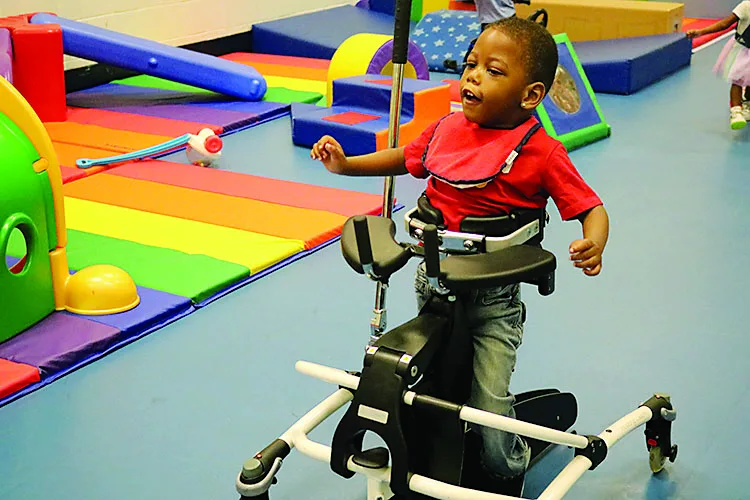
The first few years of a child’s life are crucial as they set the stage for future academic and personal success. During the first five years of a child’s life, their brain develops rapidly, allowing them to retain up to 80% of their lifetime knowledge.
Access to high-quality early childhood education has many benefits for young children, including aiding the development of social, emotional and cognitive skills. Such benefits are no different for children with special needs.
Inclusion Benefits All Children
By being included and empowered in the classroom, children with disabilities have the opportunity to learn and grow alongside their peers, which reduces the stigma often associated with disabilities.
“Inclusion is important to all children regardless of their ability, because it fosters a culture of empathy and understanding among all students,” says Sharon Thompson, Step Forward’s early childhood inclusion coordinator. “It encourages mutual respect and appreciation for differences.”
Data shows inclusive services improve social development in children, as well.
“Children with disabilities can benefit from socializing with their peers and developing better social skills,” says Renata Turner, a Step Forward early childhood inclusion coordinator. “This helps them establish stronger relationships and have a greater sense of belonging. Children with disabilities who are included in the classroom have a greater sense of belonging, which can lead to increased self-esteem.”
Early Identification
According to Step Forward’s inclusion staff, it ensures each student with a disability can fully participate in the least restrictive environment.
Once a child is identified as having a disability, the inclusion coordinators connect children and their families to a range of specialized services to support their development. These services may include accommodations like mobility devices, assistive technology, or individualized resources like counseling, speech and language therapy, occupational therapy and physical therapy.
For example, Head Start is an early education program that promotes school readiness in children from birth to age 5. It’s free to income-eligible families and focuses holistically on children to integrate nutrition and health and dental screenings into their preschool experience.
“Early identification is paramount,” Turner says. “Early identification changes a developmental path and improves outcomes for children with disabilities.”
For more information on Step Forward’s Head Start, visit stepforwardtoday.org

